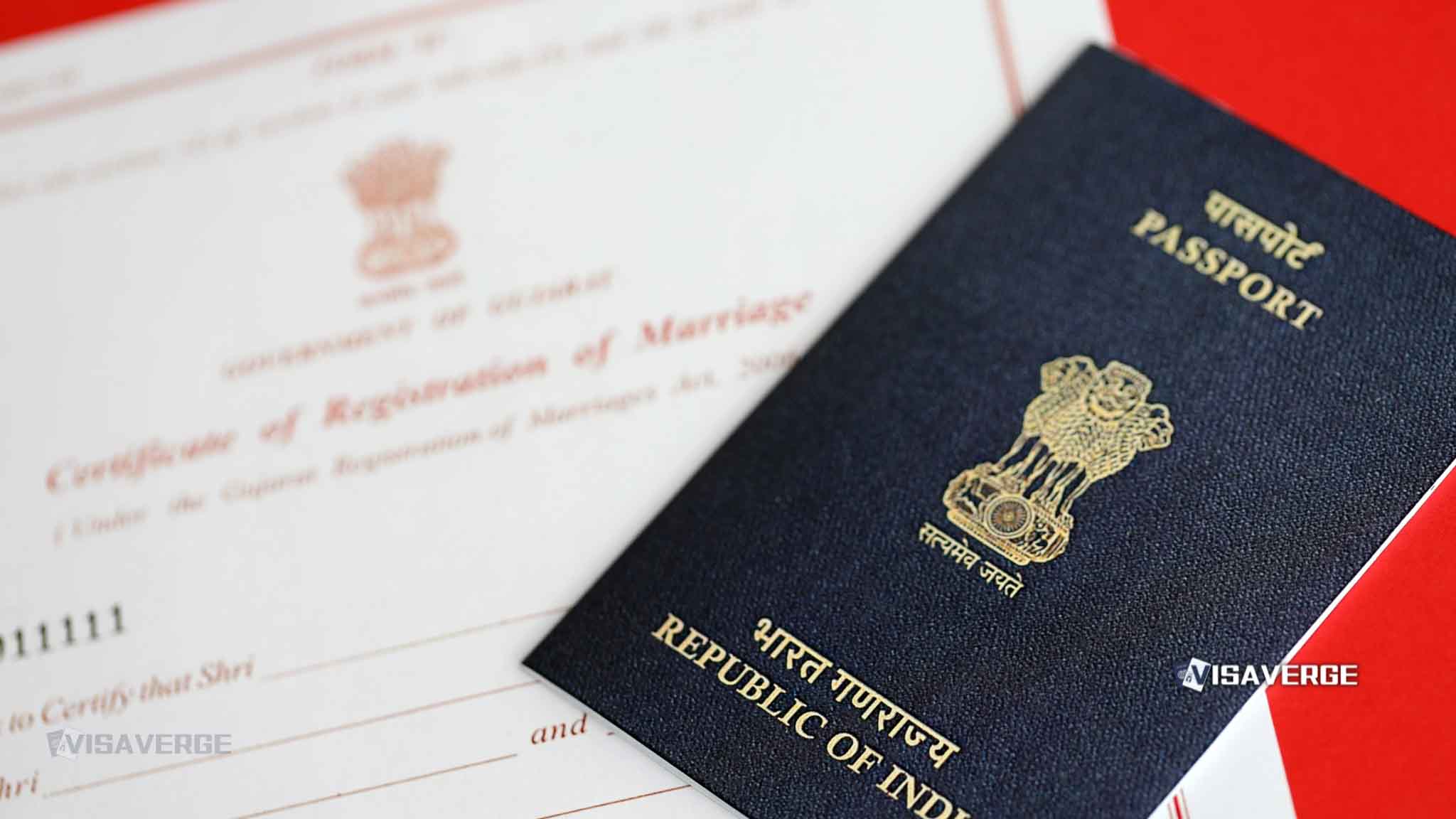Key Takeaways
• A federal judge granted a stay of removal to Eyidi Ambila on June 9, 2025, stopping his deportation.
• Ambila has been detained by ICE at Cumberland County Jail since September 23, 2024, with a deportation order since 2007.
• The stay allows Ambila to appeal while remaining in custody, highlighting immigration system delays and legal complexities.
A federal judge in Portland, Maine, ruled on June 9, 2025, that Eyidi Ambila, a Congolese national held by Immigration and Customs Enforcement (ICE) at Cumberland County Jail, cannot be deported while his appeal is pending. This decision means Ambila will remain in the United States 🇺🇸 as he continues to challenge his removal order, marking a significant moment in a case that highlights the complex realities faced by many immigrants in detention.
Who Is Eyidi Ambila and Why Is He Detained?

Eyidi Ambila is originally from the Democratic Republic of the Congo. He has been in the United States 🇺🇸 for many years, but his immigration status has been uncertain for a long time. According to court records, Ambila has had a final deportation order since 2007. This order means that the government decided he should be removed from the country. However, for various reasons, he was not deported right away.
On September 23, 2024, Immigration and Customs Enforcement took Ambila into custody. He has been held at Cumberland County Jail in Maine ever since, which means he has spent about nine months in detention. The reasons for his detention are tied to the old deportation order and the government’s efforts to carry it out.
What Did the Judge Decide?
On June 9, 2025, a federal judge in Portland reviewed Ambila’s case. The judge ruled that Ambila cannot be deported while his appeal is still being considered. This is called a “stay of removal.” A stay of removal is a legal order that stops the government from deporting someone until a court has finished looking at their case.
The judge’s decision is important because it gives Ambila more time to present his arguments and possibly change the outcome of his case. It also means he will remain at Cumberland County Jail under ICE custody until the court makes a final decision.
Why Was Eyidi Ambila Ordered Deported?
Ambila’s deportation order dates back to 2007. While the specific reasons for the original order are not detailed in the available court records, such orders are usually issued when an immigration judge finds that a person does not have legal grounds to stay in the United States 🇺🇸. This can happen for many reasons, including overstaying a visa, violating immigration laws, or being denied asylum.
Even after a final order of removal is issued, it is not always carried out right away. Sometimes, people are allowed to stay in the country for humanitarian reasons, because of changes in their home country, or because they have new legal arguments to make.
What Is a Stay of Removal?
A stay of removal is a legal tool that stops the government from deporting someone while their case is still being reviewed. People can ask for a stay of removal if they believe they have a strong reason to stay in the United States 🇺🇸 or if they face danger in their home country.
To request a stay of removal, a person usually files a motion with the immigration court or a federal court. The court then decides whether to grant the stay based on the facts of the case. If the stay is granted, the person cannot be deported until the court makes a final decision.
For more information about stays of removal and the process for requesting one, you can visit the U.S. Citizenship and Immigration Services (USCIS) official page on stays of removal.
Life Inside Cumberland County Jail
Eyidi Ambila has spent about nine months at Cumberland County Jail under ICE custody. Immigration detention can be very hard, both physically and emotionally. People in detention often face:
- Separation from family and community
- Uncertainty about their future
- Limited access to legal help
- Difficult living conditions
Detention centers like Cumberland County Jail are used by ICE to hold people who are waiting for a decision in their immigration cases or who have been ordered deported. Some detainees spend only a few days or weeks in these facilities, while others, like Ambila, can be held for many months or even years.
The Role of Immigration and Customs Enforcement (ICE)
Immigration and Customs Enforcement is the federal agency responsible for enforcing immigration laws inside the United States 🇺🇸. ICE officers arrest and detain people who are suspected of violating immigration laws, and they carry out deportations when ordered by the courts.
ICE often uses local jails, like Cumberland County Jail, to hold people in immigration custody. This partnership between federal and local authorities has been the subject of much debate, with some arguing that it helps keep communities safe, while others say it leads to unnecessary detention and hardship for immigrants.
Legal Process: How Deportation Appeals Work
When someone receives a final order of removal, they have the right to appeal the decision. The appeal process can be complicated and may involve several steps:
- Filing an Appeal: The person or their lawyer files an appeal with the Board of Immigration Appeals (BIA), which is the highest immigration court in the country.
- Requesting a Stay of Removal: While the appeal is being considered, the person can ask for a stay of removal to prevent deportation.
- Court Review: If the BIA denies the appeal, the person can sometimes ask a federal court to review the case.
- Final Decision: If all appeals are denied, the deportation order becomes final, and ICE can carry out the removal.
During this process, people like Eyidi Ambila often remain in detention, especially if ICE believes they are a flight risk or a danger to the community.
Why Do Some Deportation Cases Take So Long?
Deportation cases can take a long time for many reasons:
- Backlogs in the immigration court system
- Complex legal arguments
- Changes in immigration law or policy
- Requests for new evidence or hearings
- Humanitarian concerns, such as fear of harm in the home country
In Ambila’s case, his original deportation order was issued in 2007, but he was not detained by ICE until 2024. This long gap is not unusual, as immigration authorities sometimes wait to enforce old orders or may lose track of individuals until they come into contact with law enforcement for other reasons.
What Are the Implications for Eyidi Ambila?
The judge’s decision to grant a stay of removal gives Ambila a chance to continue fighting his case. It also means he will not be sent back to the Democratic Republic of the Congo right away, which could be important if he faces danger or hardship there.
However, the stay of removal does not guarantee that Ambila will be allowed to stay in the United States 🇺🇸 permanently. It only means that he cannot be deported until the court finishes reviewing his case. If the court eventually denies his appeal, he could still be removed from the country.
Broader Impacts: What Does This Mean for Other Immigrants?
Ambila’s case is not unique. Many immigrants in the United States 🇺🇸 face long periods of detention while they fight their cases in court. The use of stays of removal is an important tool for protecting people who may have strong legal or humanitarian reasons to stay in the country.
This case also highlights the challenges faced by immigrants who have old deportation orders. Even after many years, these orders can be enforced, leading to sudden detention and the risk of removal.
According to analysis by VisaVerge.com, cases like Ambila’s show how complex and stressful the immigration system can be for individuals and families. The long waits, uncertain outcomes, and risk of detention make it very hard for people to plan their lives or feel secure.
The Role of Legal Representation
Having a lawyer can make a big difference in immigration cases. Lawyers help people understand their rights, file appeals, and request stays of removal. However, many people in detention do not have access to legal help, which makes it much harder to win their cases.
Groups that support immigrants often call for more funding for legal services and for changes to the system to make it fairer and faster.
What Happens Next for Eyidi Ambila?
Now that the judge has granted a stay of removal, Ambila’s case will move forward in the appeals process. The court will review his arguments and decide whether he should be allowed to stay in the United States 🇺🇸 or be deported to the Democratic Republic of the Congo.
This process could take many more months, depending on the complexity of the case and the court’s schedule. During this time, Ambila will likely remain at Cumberland County Jail under ICE custody.
What Can Other Immigrants Learn from This Case?
Ambila’s case offers several lessons for others facing similar situations:
- Know Your Rights: People with deportation orders have the right to appeal and to ask for a stay of removal.
- Seek Legal Help: Having a lawyer can greatly improve the chances of success in immigration court.
- Be Prepared for Delays: Immigration cases can take a long time, especially if appeals are involved.
- Stay Informed: Changes in immigration law or policy can affect your case, so it’s important to keep up to date.
Resources for Immigrants Facing Deportation
If you or someone you know is facing deportation, there are resources available to help:
- Legal Aid Organizations: Many groups offer free or low-cost legal help to immigrants.
- Official Government Information: The U.S. Department of Justice’s Executive Office for Immigration Review (EOIR) provides information about immigration courts and appeals.
- Community Support Groups: Local organizations can provide emotional support, housing, and other assistance.
The Human Side of Immigration Detention
While legal details are important, it’s also crucial to remember the human side of cases like Ambila’s. Long-term detention can cause great stress and hardship for individuals and their families. Many detainees worry about being separated from loved ones, losing their jobs, or facing danger if sent back to their home countries.
Advocates for immigrants often call for alternatives to detention, such as supervised release or community programs, which allow people to stay with their families while their cases are decided.
Conclusion: What Does the Future Hold?
The judge’s decision to grant a stay of removal for Eyidi Ambila is a temporary victory in a long and difficult process. It shows how important the courts are in protecting the rights of immigrants and making sure that every case is given careful consideration.
For Ambila, the fight is not over. He will continue to pursue his appeal while remaining in ICE custody at Cumberland County Jail. The outcome of his case will depend on the arguments made in court and the decisions of the judges involved.
For other immigrants, this case is a reminder of the challenges and uncertainties of the U.S. immigration system. It also shows that, with persistence and the right legal help, it is possible to win more time and a fair hearing.
If you are facing a similar situation, consider reaching out to legal aid organizations and staying informed about your rights and options. For more details on how to request a stay of removal or appeal a deportation order, visit the USCIS page on stays of removal.
As the legal process continues, many will be watching to see what happens next for Eyidi Ambila and what his case means for others in similar situations.
Learn Today
Stay of Removal → A legal order that temporarily halts deportation while a case is reviewed by the court.
Immigration and Customs Enforcement (ICE) → Federal agency enforcing immigration laws, detaining immigrants, and executing deportation orders within the US.
Deportation Order → A final government order requiring a non-citizen to leave the United States.
Board of Immigration Appeals (BIA) → The highest administrative court that reviews immigration cases and appeals in the US.
Appeal → A legal request to a higher court to review and change a decision made in a lower court.
This Article in a Nutshell
On June 9, 2025, a judge blocked Eyidi Ambila’s deportation amid his appeal. Detained since 2024, Ambila now remains in custody at Cumberland County Jail as his case unfolds under complex immigration laws.
— By VisaVerge.com













